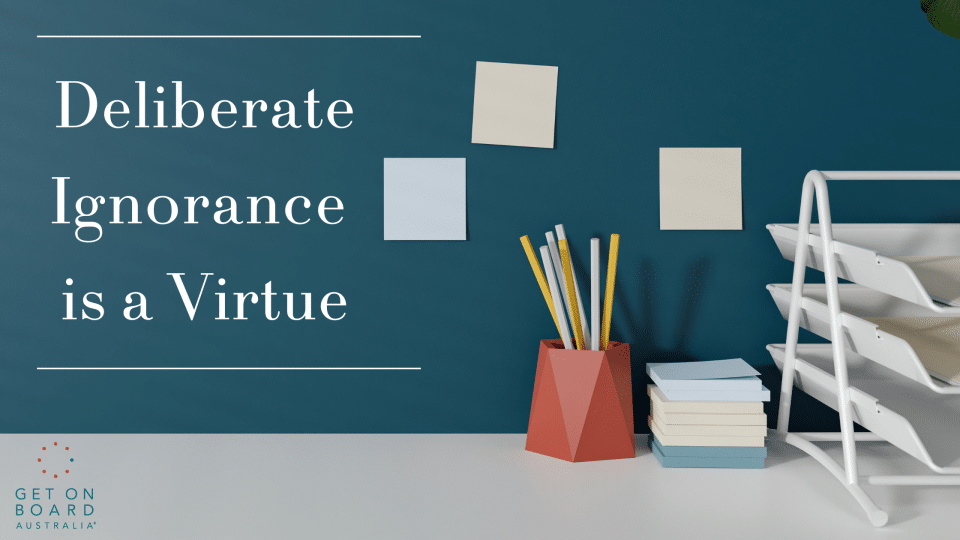Deliberate Ignorance is a Virtue

As board members, we know a lot of stuff. And we like that we know a lot of stuff. This knowledge creates comfort. Not knowing creates discomfort.
Certainty is preferential. But certainty rarely exists. Even when we feel that something is certain, it can easily be derailed when the unexpected occurs.
The reality is, we’re all making decisions based on our best guess of a potential outcome using assumed probabilities created from imperfect information.
The sooner we accept this reality, the sooner we can begin to take a better approach to making decisions in the boardroom.
This is where choosing to be deliberately ignorant can be of value.
In his book, Sapiens, Yuval Noah Harari discusses the human “discovery” of ignorance; the moment that modern people accepted ‘we do not know everything’ enabled the discoveries bought about from the various sciences.
Based on the scientific assumption that no theory is 100% correct, the constant search for the ‘truth’ is sustained by accepting ‘that the things that we think we know could be proven wrong as we gain more knowledge.’1
Modern science is based on deliberate ignorance.
This deliberate ignorance drives scientists to observe and make connections to create theories to be leveraged to acquire new powers and develop new solutions. ‘A theory that enables us to do new things constitutes knowledge.’2
How does this idea sit with you?
How comfortable are you to admit that you do not know something? Or how are you at suspending your assumptions about something and challenging their accuracy?
When was the last time you changed your mind when presented with new information? Do you actively seek out contrary information to your beliefs?
Taking the mindset of deliberate ignorance into the boardroom can be a powerful tool to work towards reaching a better decision and achieving a greater outcome.
Don’t be ignorant about your ignorance. Harness it for the inherent value that it can have. And if you’re not naturally ignorant about something, pretend that you are; it may prove to be highly valuable in getting a better outcome.
Read more:
Book | Sapiens A Brief History of Humankind
Book | Deliberate Ignorance
Article | Deliberate ignorance is useful in certain circumstances, researchers say (for a general discussion on human behaviour related to deliberate ignorance)
Article | 3 Socratic Principles to Make Better Decisions and Get What You Want
1. Yuval Noah Harari (2014), Sapiens A Brief History of Humankind, Chapter 14, e-version (Random House, Vintage Digital).
2. Ibid.
